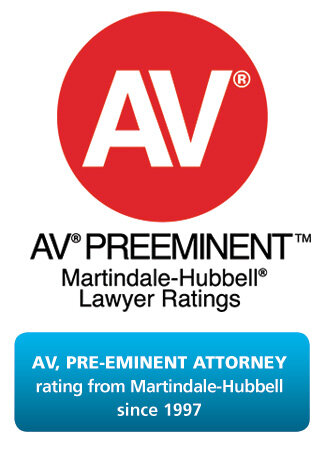Business Owner Sells to Employees
Thinking of Selling Your business? Your Employees Might be the Right Buyer!
For a business owner seeking a buyer or retirement, we can smoothly transition your privately-owned business to a worker-owned one that meets your objectives and provides a graceful and community-friendly exit. (See case studies Carris Reels, Zingerman’s, Arbor Assays, Rosauers Supermarkets)
We have experience in creating many types of employee ownership to fit diverse situations. For a comparison of the best fit and best uses of ESOPs, cooperatives, employee ownership trusts and direct ownership see “Employee Ownership”
Key Benefits of All Types of Employee Ownership
You have a buyer who will pay a fair price for your stock. Many owners of closely held businesses are unable to find a buyer who will pay a fair price for their stock, especially if they are initially offering only a minority block of shares. All methods of employee ownership can begin with a sale of less than a majority of the owner’s stock. An ESOP provides a market for closely held stock, at a fair price determined by an independent appraiser. With a worker co-op or an EOT there is no requirement for an independent valuation. However, it is advisable to create a fair transaction. Any of these methods can begin with a sale of less than a majority of the owner’s stock.
Sale to employees preserves the company’s independence and rewards the people who made it a success. You may be reluctant to sell your company to a buyer with no ties to the community.
Additional Reasons to Consider an ESOP
Your company can write off the expense of buying your stock. The company can deduct from taxable income the amount of contributions made to finance the purchase of your stock by the ESOP (within limits). In a leveraged ESOP, this means that the company can, in effect, deduct interest and principal payments on the loan used to purchase your stock. Additionally, in some cases, stock dividends may be used to repay purchase debt. Without an ESOP, only interest payments would be deductible. This savings boosts after tax profits and the company’s ability to buy your stock.
Your Sub-S company’s ESOP pays no income tax. An ESOP trust can be a shareholder in your Sub-S company. In fact, the more stock in the S company the ESOP holds, the more tax-free cash remains in the company. An ESOP has greater tax advantages than any other Sub-S shareholder, in that its income is not taxed (due to its exemption from unrelated business income tax (UBIT).) Instead that income is only taxed to the ESOP participants when they take their distribution upon leaving the company. Employer contributions are deductible for up to 25% of covered compensation. There are no additional deductions for repayment of loan interest. An ESOP in combination with a 401(k) plan, allows the company match to be made in company stock. A Sub-S ESOP is not eligible for the expanded tax or dividend deductions of a leveraged ESOP, nor the capital gains rollover.
Your proceeds from an ESOP stock sale may be tax-free. If you sell your stock in a Subchapter C company to an ESOP and reinvest the proceeds from the sale in stock of another U.S. Company, your capital gain from the sale will not be taxed until you sell the newly acquired stock. If you decide not to sell the new stock during your lifetime, you may avoid taxation of the ESOP sale income entirely (depending on the estate tax basis rules applicable on the date of death). This tax “rollover” is only available if, after the sale, the ESOP holds at least 30% of the Company stock. Certain other federal requirements must also be met.
ESOPs are very flexible. You can cash out all your shares immediately or gradually sell your shares to an ESOP over many years.
Additional Reasons to Consider an Eligible Worker Owned Co-op (EWOC)
Your proceeds from a stock sale to a worker co-op may be tax-free. If you sell your stock in a Subchapter C company to an “eligible worker owned co-op” (EWOC) and reinvest the proceeds from the sale in stock of another U.S. company, your capital gain from the sale will not be taxed until you sell the newly acquired stock. If you decide not to sell the new stock during your lifetime, you may avoid taxation of the EWOC sale income entirely (depending on the estate tax basis rules applicable on the date of death). This tax “rollover” is only available if, after the sale, the EWOC holds at least 30% of the Company stock. Certain other federal requirements must also be met. The Subchapter S corporation tax benefits do not apply to EWOCs.
Co-ops are less expensive and less regulated than ESOPs. A co-op is a business entity not an employee benefit plan. There is no trust, no trustee, and no pension regulation.
Co-ops pay less corporate tax. Profits allocated to members are taxable to the worker members. So, the company only pays tax on profits not allocated and distributed to the members.
Additional Reasons to Consider an Employee Ownership Trust (EOT)
Flexibility and less cost. An EOT is not subject to pension law (as is an ESOP) nor to the state co-op laws. So, the design can be more flexible, simpler, and less expensive.
No repurchase liability. It is a type of profit-sharing plan with an employee voice. So, there is no stock owned by the employees that must be bought back as in an ESOP or co-op.
However, no special tax benefits and you may need to use an out-of-state trust.
EMPLOYEE OWNERSHIP THAT FITS YOUR NEEDS
We can smoothly transition your privately-owned business to a worker-owned one that meets the seller’s objectives, is socially responsible and includes employee participation. Learn more
TESTIMONIAL
“When we founded our ESOP I was afraid that I was asking too much because of the unique provisions I wanted. I had talked to several other potential attorneys and advisors. They said “Why, and you can’t do that”. Deb cut through ESOP law and got our ESOP exactly like I wanted and it has worked beautifully. Deb is smart, fast, knowledgeable and efficient. I would recommend her for anyone considering employee ownership.” -Bill Carris, selling owner & current board chair, Carris Reels, Inc.







